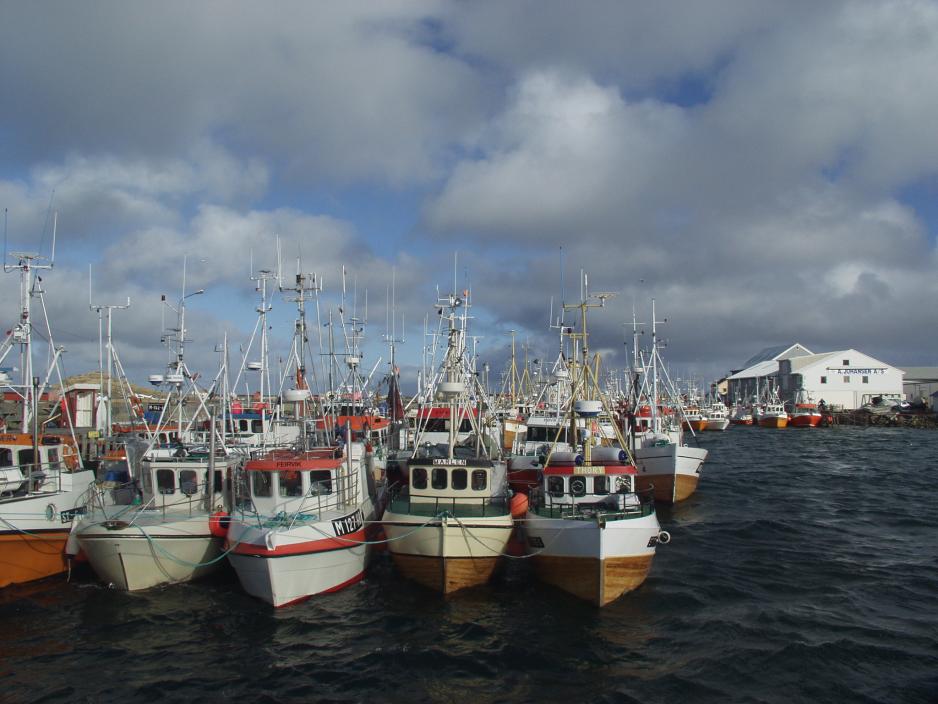Fear is Like a Root Filling Without Anesthesia

The fish industry is grappling with both Corona and a market that may not be there anymore. Photo: Redningsselskapet/Flickr
Commentary: Fishermen and fish buyers all over the world fight against fear of closed processing facilities. At the same time, they fight a market in lockdown. In Alaska, the Corona virus alredy has a solid upper hand on the fish industry.
The fear of a Corona outbreak is as present in Norwegian fish processing plants as is a root filling without anesthesia.
The fear of closed borders appears to be so strong it verges on a business policy riot.
Only self-criticism is lacking when the pandemic threatens an entire industry.
Rushed towards the border
Norwegian Prime Minister Erna Solberg was wrong when she Thursday argued that North Norwegian fish processing plants had its foreign workers in place when the borders were shut the night before Friday. In fact, she was so wrong that Fisheries Minister Odd Emil Ingebrigtsen is considering forcing unemployed and furloughed Norwegians to the gutting tables. While Poles and people from Lithuania raced all the could towards the border to make it in time, the Fisheries Minister also encouraged the spawn-ready cod, the skrei, to postpone its migration into Lofoten waters.
Only self-criticism is lacking
What we all fear, an outbreak in the midst of the cod season, has already hit Akutan in the Aleutian Islands, Alaska. Not a line hook, not a net, have been dropped into the sea to catch any of the enormous amounts of cod and pollock currently migrating towards the American North Pacific town of some 1,000 inhabitants.
Because with fish and seasonal workers also came the pandemic.
Giant fish processing plants have been shut down. There is no longer anyone to buy their fish.
You almost need a microscope to find Akutan on a world map; an island a few hundred sea miles off Alaska’s mainland and health services. An entire archipelago living from the fish industry’s busy season. In Dutch Harbor, on the neighboring Unalaska island, the poster across the door of the local bar uses only a few words to describe the entire connection between the local community and the fisheries: “Where fish and Drink become one”.
Bring your own gun
A few minutes further down the street one finds the Norwegian Rat Saloon, which – before Corona hit Alaska – organized the “Wall of Guns Night!!!!”. The exclamation marks are not mine. Nor is the poster’s encouragement for people to “bring their guns”. The entertainment of the evening was a free lottery in which the prize was guns for kids under the age of 16 attending together with their parents.
Where fish and Drink become one
But that was before the pandemic was imported to the island community. The fishermen are already on board their vessels, tied together with long ropes along quays that are not dimensioned for having so many boats at bay. The fisheries, which were to be in full swing now, will not start until the plants can open up again.
Population figures multiply during the brief Akutan season. The local population has not place amongst the seasonal workers. And many of the incoming workers will have a far shorter season than estimated beforehand.
Even before fish was landed, many have returned. Or rather; evacuated. They were airlifted with ambulance planes and brought to hospitals in Anchorage.
Ventilators, not fish
Vast amounts of fish were to be transported out from the archipelago. Instead, ventilators and oxygen are brought in. Weather conditions makes it impossible to keep the air space to the nearest hospital in Anchorage open.
For those not quarantined or in isolation, there is not much comfort in the fact that they are not allowed into the local bars either.
Right now, the crucial fisheries off the Aleutian Islands, the archipelago in the Northern Pacific Ocean, are put on hold.
No one knows whether or not they will ever start up again. An ongoing disaster is playing out before the eyes of fishermen, industrial workers, the local population and the local authorities.

Norwegian Fisheries and Seafood Minister Odd Emil Ingebrigtsen. Photo: Hans Kristian Thorbjørnsen / Flickr
Along our own Norwegian coastline, drama ensued when the government closed national borders at midnight before Friday. In a meeting with Fisheries Minister Odd Emil Ingebrigtsen on Thursday, a series of companies said they are still missing 75 percent of their workers who were to receive the fish landed. Mayor Remi Solberg of Vestvågøy municipality in Lofoten, who is also Chair of the Lofoten Council, is one out of many who define the situation as dramatic.
Most of all a disaster
Along with his Røst colleague Elisabeth Mikalsen he, too, had heard Prime Minister Erna Solberg a few hours earlier say that closed borders would not have any consequences for the Lofoten fisheries. Seasonal workers were already in place, she said.
That was not necessarily so. It was more than anything about a disaster, according to Mayor Elisabeth Mikaelsen.
On Værøy Island, Mayor Susan Berg Kristiansen shares her worries.
All this while the Prime Minister and the Fisheries Minister made it clear that seasonal workers in the fish industry are not subject to any of the strict exemptions under the new regulations.
Their worry is reinforced by the fact that several mayors already have or have had imported infection cases within their municipal borders.
Time is running out
But it is only just now, when time is running out, that there is focus on unemployed and furloughed seasonal workers already located in Norway.
I share his hope
Fisheries Minister Odd Emil Ingebrigtsen hopes we will be able to work something out.
I share his hope.
But if we do manage to do so there is, sadly, another round waiting. The Corona pandemic is not only a challenge for those buying fish. The challenge may also prove huge when that same fish is to be sold on.
Because where is the market that is to receive all that fish, so that bank loans can be paid, and storages emptied?
Where are those who are to eat this fish when restaurants across the world are shut down indefinitely?
And where does one find humility over having taken too lightly on the joint efforts to combat the virus while there was still time to recruit workers locally and nationally?
This commentary was originally published in Norwegian and has been translated by HNN's Elisabeth Bergquist.

